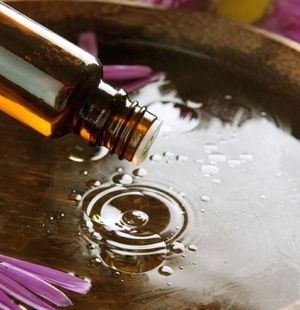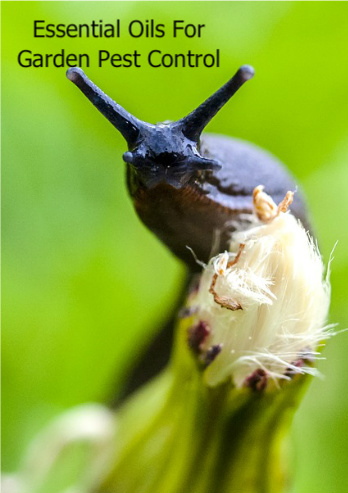- Home
- Guide for Essential Oil Use
- Essential Oil Safety
As an Amazon Associate and affiliate with other programs, I may earn revenue from qualifying purchases through affiliate links. This does not affect the price you pay. Privacy Policy / Disclosures. This site is for educational purposes only.
Essential Oil Safety Guidelines for Aromatherapy
Is aromatherapy safe? Yes, as long as you know a few essential oil safety guidelines and educate yourself about essential oils, how to use them, and when not to use them.
First, always read and follow all warnings and cautions on the label. Also, realize that something safe for 99% of people 99% of the time may cause an unexpected adverse reaction for a few people—know when to seek professional help.
Shelf Life of Essential Oils
Essential oils don't contain fatty acids, meaning they don't become rancid in the way vegetable oils do. However, light, heat, moisture, and air can cause the quality of essential oils to deteriorate. Protect the oils by storing them in dark glass bottles, tightly sealed, away from heat.
If you properly store authentic essential oils, most of them can retain their quality for years (low-quality or adulterated oils will go bad more quickly). The exception is citrus oils, which may only remain good for 6 to 12 months after opening.
Dilution of Essential Oils
In guidelines for using essential oils, you will often see the recommendation that you always dilute the oils before using them on your skin. However, it depends. Many sources acknowledge that you can safely use a few oils, such as lavender and tea tree, "neat" (directly on your skin) if you aren't sensitive to the oil and it's an authentic, not adulterated, oil.
Other sources discuss using a wider range of essential oils without dilution. However, you must know enough about a particular essential oil and your possible sensitivity to it to make a decision. If in doubt, dilute using these guidelines:
- For healthy adults and teenagers, a two to ten percent dilution (2 to 10 drops essential oil in one teaspoon carrier oil), depending on the oil, your sensitivity, and the purpose for using the oil.
- For pregnant women, frail adults, people with sensitive skin, people with serious health issues, and children under age 6, start with a one percent dilution (one drop in one teaspoon carrier oil).
- For healthy children age 6 to their teens, start with a one to two percent dilution.
Skin Essential Oil Safety
Before using a new essential oil, skin test it. Dilute a drop of essential oil in a carrier oil that you know you can use. Apply the blend to the skin on your inner arm. If redness or irritation develops, don't use the oil.
If you're highly sensitive, you might want to use this more extensive test:
- Rub one drop of carrier oil onto your upper chest or inner arm.
- Wait 12 hours, and then check for redness or other skin irritation. If your skin is clear, place one drop of selected essential oil in 15 drops of the same carrier oil. Rub the blend into your upper chest or inner arm.
- Check your skin 12 hours later. If you have no skin reaction, you can probably safely use both the carrier oil and the essential oil.
At any time, even if you have previously used an oil without a problem, if redness, burning, itching, or irritation occurs, stop using the essential oil immediately. Apply a carrier oil to your skin to help relieve the irritation.
Also, keep oils away from eyes and mucous membranes. If essential oil gets into your eyes, flush with lots of carrier oil immediately. (Water may worsen the irritation.)
Internal Use
Use essential oils internally only with professional guidance. Not all essential oils are safe for internal use, and you must know for sure you are using a genuine, authentic essential oil. Internal use of adulterated oils may be dangerous.
Pregnancy and Essential Oil Safety
Ideally, consult a professional before using any essential oil while pregnant. Pregnant women should avoid some oils completely, such as peppermint, clary sage, rosemary, and wintergreen. See this article for more about aromatherapy during pregnancy.
Sun Sensitivity
When you use angelica root, bergamot, or some cold-pressed citrus oils, your skin may become more sensitive to ultraviolet (UV) light for 24 to 72 hours. Avoid being in the sun or using a tanning bed after using these oils on your skin.
Note that lime and lemon also come in distilled versions that do not cause sun sensitivity. Bergamot is also available in two versions, one that causes sun sensitivity and a begaptene-free version that does not.
Medical Conditions
If you have a serious medical condition, some essential oils may be inappropriate or cause an adverse drug interaction. Get professional advice. Essential Oil Safety: A Guide for Health Care Professionals is a good resource.
Click here for information about essential oils and epilepsy.
Buy Quality Essential Oils
Don't buy perfume or fragrance oils if you want the benefits of essential oils. Also, carefully select where you purchase your essential oils. Quality varies a lot from company to company, and some companies try to pass off adulterated oils as genuine.
Photo Credit: subbotina/123RF Stock Photo







